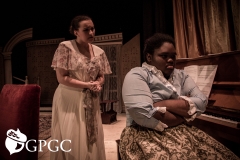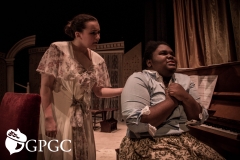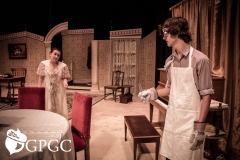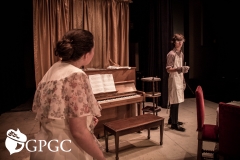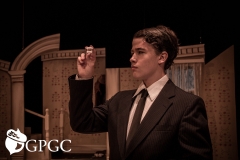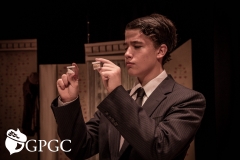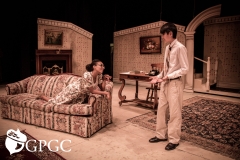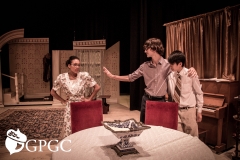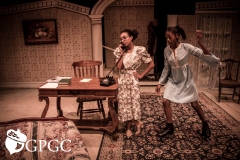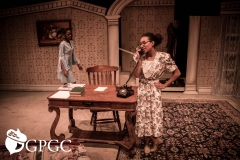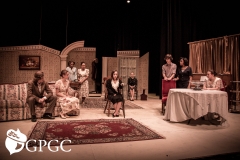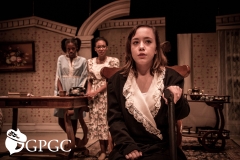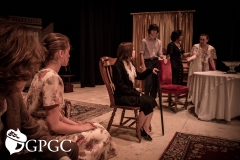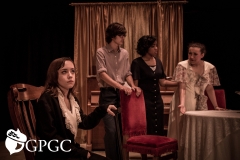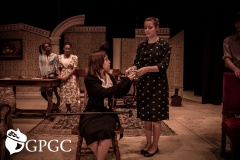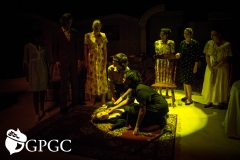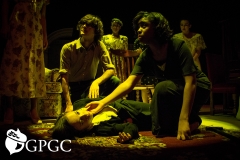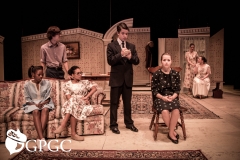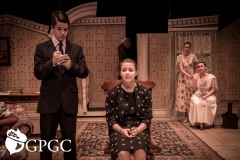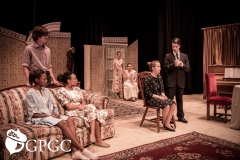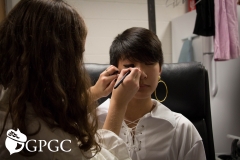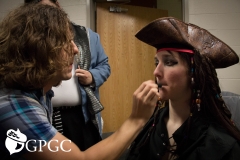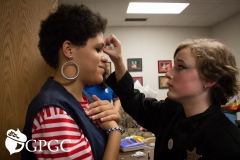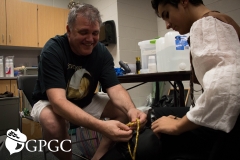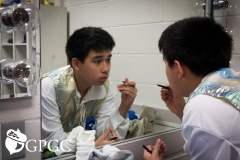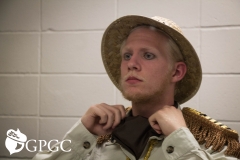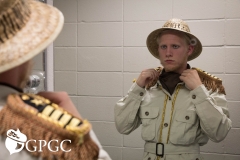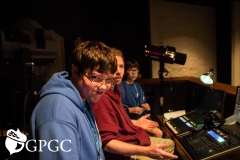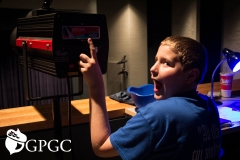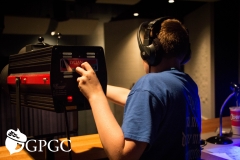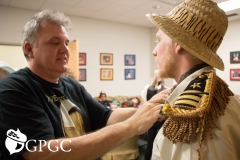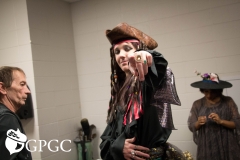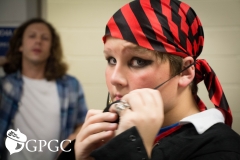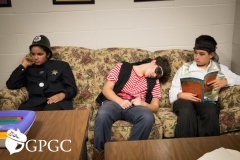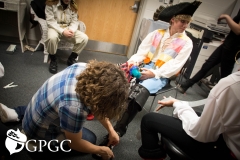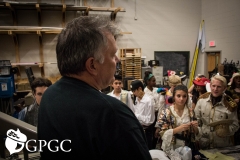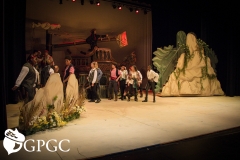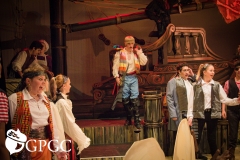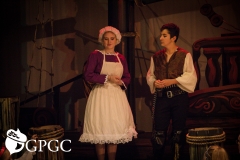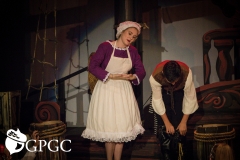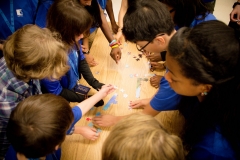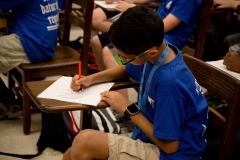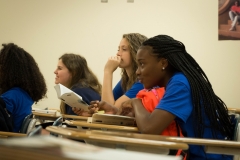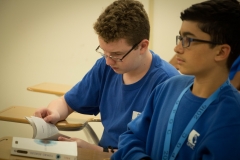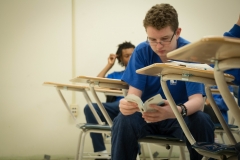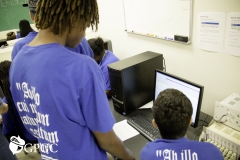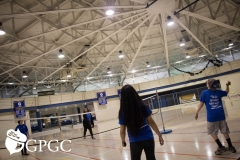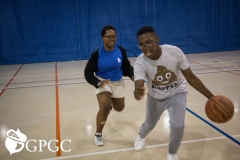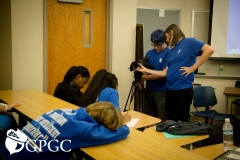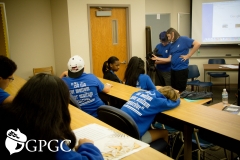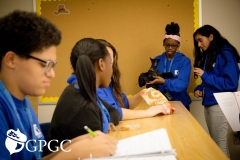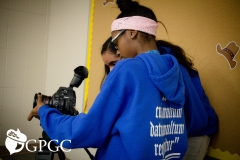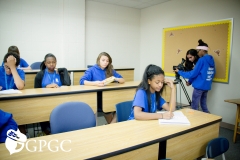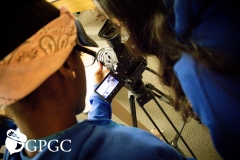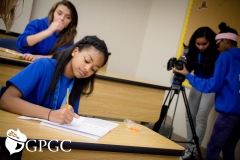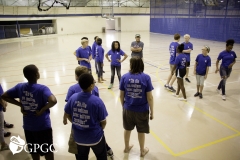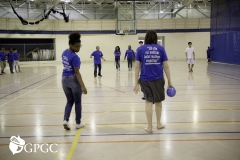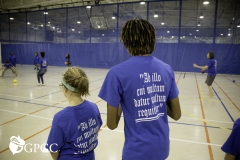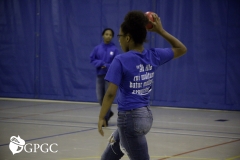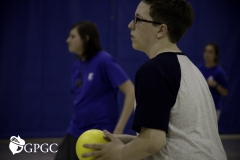Author: Joshua Brown
At long last, here are the photos from “Pirates of Penzance” Enjoy.
Here is the final edition of The Thinker for the summer. We hope you’ve enjoyed reading them!
On Tuesday, July 12, a McNeese student group in conjunction with the local Lake Charles chapter of the NAACP will be holding a prayer vigil on the McNeese campus (in the Quad) starting at 7 PM. Unfortunately there have been rumors of other groups planning to protest the prayer vigil and although we don’t expect any trouble we have decided, after consultation with the McNeese administration and our security officer, to keep our students in the dorm Tuesday night after dinner. As parents, you are of course welcome to come check your student out of the dorm for any reason Tuesday night but we wanted to let you know that the students will be restricted to the dorm for the night. If you have any questions or concerns about this please feel free to call or email me (Joshua Brown) – director@gpgc.org, 337-475-5446.
Here’s the fifth issue of The Thinker for 2016.
Students got a great chance to view the planets through a high powered telescope last night. Check out the photos in our Classes 2016 Gallery. New photos added into this gallery will be at the end.
Students taking part in a quiz bowl as part of their afternoon Critical Thinking class. View the photos in our gallery here:
Our older students (9th and 10 graders usually) are called “Grads” here at the Program. That’s a long story for another day but these students take college-level classes in the morning. This summer we are offering English (Creative Writing), Psychology in Film, and Special Topics in Criminal Justice.. Here are reports from Weeks Three and Four for each of those classes.
Creative Writing (Mr. Avee Chaudhuri, Instructor):
Week Three:
We began our poetry workshop this week. Students generally treated one another’s work with respect and made useful and insightful criticisms. My main responsibility in this workshop is to identify how an individual poem is working in or against a certain aesthetic tradition, if the class is unwilling or unable to do so. Otherwise, I sit back and let the students manage the discussion, and so far they have done a good job. On Thursday, we discussed what distinction, if any, exists between art and obscenity. This had the potential to devolve very quickly into hysterics and giggles and attempts on the students’ part to talk about their experiences viewing pornography, but the class did a good job of paying attention and demonstrating maturity. We read through Judge Woolsey’s majority decision in United States v. One Book Called “Ulysses,” which is a landmark obscenity case. On Friday we talked about flash-fiction, its emergence in the digital age, and how the brevity of the form lends itself to either 1) macabre humor or 2) existential meditation. Students have a 500 word response paper due for Monday.
Week Four:
On Monday, the students discussed their homework – a 500 word typewritten response to either Primo Levi’s “A Tranquil Star” or Amelia Gray’s “Date Night.” “A Tranquil Star” is concerned with the limits of language in describing the physical universe. “Date Night” is far more ambiguous and led to a good class debate about whether literary works have to contain “a deeper meaning” or whether they can be read for purely aesthetic or formalist reasons. On Tuesday, we discussed Realism as a literary movement. I lectured briefly about how Realism was a response to Romanticism and attempted to portray “ordinary life” in a way that was sincere and impartial. Then we discussed “The Destructors” by Graham Greene (which I did not realize was the inspiration for the Grad Fruit Drop) and “Are These Actual Miles?” by Raymond Carver. The students noted the plain, unadorned style, the impartial tone, and the lack of abstraction which these works share. On Wednesday, I introduced the concept of metafiction by showing the class a self-referential sketch from a British comedy show. We then talked about metafiction in a historical sense, and I pointed out that texts have been markedly self-referential since antiquity. I also shared with them Paul De Man’s belief that all fiction is metafiction since all fiction is at the very least implicitly concerned with language. As a corollary to metafiction, we also discussed Ars Poetica, poetry which describes poetics. The students read “A Continuity of Parks” by Julio Cortazar as their textual introduction to metafiction. On Thursday, we continued our discussion of metafiction by discussing Margaret Atwood’s “Happy Endings.” We then transitioned to literary Postmodernism by discussing Donald Barthelme’s “Some of Us Had Been Threatening Our Friend Colby.” The class seems to respond well to stories which involve macabre humor. I attribute this to their youth and intelligence.
Special Topics in Criminal Justice (Mrs. Jessica Markstorm, Instructor):
Week Three:
This week focused on problems encountered with police work. Issues such as aggressive patrol and excessive force were discussed. The students were presented with a thorough explanation of the 4th Amendment that included coverage of numerous Supreme Court cases. The exclusionary rule, “plain view” doctrine, and warrantless searches were evaluated.
Week Four:
Students learned the basic requirements of Miranda Rights and the exceptions to those requirements. The roles of the prosecutor, judge, and defense counsel were explored for a criminal case. Jury selection was discussed. A special emphasis was placed on issues regarding bail and plea bargains.
Psychology (Dr. Linda Brannon, Instructor):
Week Three:
During the third week, we finished our examination of perception with a discussion of the difficulties of recovery of vision. We saw scenes from the movie Blink, which is a fictionalized story that involves this topic.
Our main topic for the week was memory. We discussed memory systems, including their limitations and failures. Students saw two movies about memory: Inception and Memento. Inception is about implanting false memories, and Memento is about a person with anterograde amnesia, which is not the typical movie portrayal. Students enjoyed both, and we spent time critiquing the movie version of amnesia, which pretty much no movie does correctly.
Week Four:
We finished our examination of memory with a discussion of the misinformation effect, which is a process that results in false memories. This phenomenon is important for false criminal convictions based on eyewitness testimony as well as many memory failures.
We continued to the topic of sleep, which we discussed mostly in terms of the physiology of the stages of sleep and the brain structures that are activated during the various stages. We talked about the relationship between dreams and the rapid eye movement (REM) stage of sleep. No discussion of dreams is complete without Freud’s theory of the symbolic content of dreams, so we talked about that view, but we also considered a physiologically based theory of dreaming called the activation-synthesis theory. We also discussed some of the effects of sleep deprivation.
Here are the reports from the Composition teachers for Weeks Three and Four.
Freshmen Composition (Mrs. Cecil Tate, Instructor)
Week Three:
Tuesday- Returned last week’s essays, discussed common mistakes. Watched short videos on the following topics: Evaluating sources, connecting your audience through writing, and understanding tone and voice.
Wednesday- Reviewed videos from yesterday, Read aloud three different comparison essays and critiqued each orally discussion style.
Thursday- Students asked for an extension on this week’s essay. I decided to give them until Tuesday to turn in. Students will be allowed to work on and share essays for peer critique in class next week.
This week we finished up on poetry and started transitioning to fiction.
Here are some reports from the teachers of each of our Humanities classes for the previous two weeks of the Program. We have organized them by class:
Freshmen Humanities (Ms. Kristen Harrell, Instructor)
Week Three:
At the beginning of the week, we finished talking about the importance of the poleis in Greece, particularly Athens and Sparta, and we watched excerpts of a wonderful documentary about the Battle of Thermopylae from the History Channel. The students’ discussions were great. They were able to give highly in depth answers to why Athens evolved into a direct democracy. Figures such as Solon and Clisthenes were also introduced.
The Persian War was discussed at length including the battles of Marathon and the one at Thermopylae ten years later. We also had a rather fun debate today concerning reality and perception. I showed them how Xerxes was interpreted in the movies 300 and One Night with the King. They immediately recognized that they were the drastically different. One of the main themes of the week seemed to be what is history when we only know it through the lens of the victors.
Week Four:
Although it was a short week, we made great headway in Greek philosophy. We spoke about the life of Socrates and his school of thought concerning Truth. After going over his trial and death, they made the connection between Socrates to other historical figures who’ve been killed for passive beliefs in teaching. They brought up Gandhi, Martin Luther King, Jr., and even Jesus to name a few. To introduce Plato, I had the students act out the allegory of the cave. I had students face the wall with their backs to the door. I then placed the overhead projector behind them to mimicking the fire casting shadows and I opened the door for more lighting which mimicked the outside world. I think they really enjoyed when one of the captives left the cave to discover Truth outside.
Humanities Two (Mr. Cody Magee, Instructor)
Week Three:
This week we continued working on making connections between dystopian societies in literature and civics/government/class/technology issues in contemporary society.
Week Four:
This week we discussed the beginning of Brave New World, as well as upcoming Utopia Projects. Because our plan is to finish the novel by next Thursday we also spent a class time reading. As a reward for working hard this week (and also to attempt to teach them to stop talking OVER each other) we played a game modeled after the 60’s game show Password.
Humanities Three (Mr. Avee Chaudhuri, Instructor)
Week Three:
This week we wrapped up discussing 1984. This included discussing Emmanuel Goldstein’s The Theory and Practice of Oligarchical Collectivism, which led to fruitful discussions about the cyclical nature of history, economic theory, and the notion of perpetual war. Admittedly, the class did not enjoy the novel as a whole, though they seem to understand why it remains relevant and why it should be read and discussed. The students sat for an essay exam on the book on Wednesday. While they tell me the exam was challenging and difficult, I expect they are either being modest or attempting to assuage my ego, since I wrote the test questions. It was another good week. Students continue to impress. Next week will begin with a discussion of “The Lottery in Babylon” by Jorge Luis Borges, and I will also distribute copies of our next major text, The Handmaid’s Tale by Margaret Atwood.
Week Four:
Our week began with a discussion of the Jorge Luis Borges story “The Lottery in Babylon.” Borges is a notoriously arcane writer and I’m always a little nervous how well the students will grapple with him, but they did an exemplary job and we had a good discussion about this short story. We then started reading and discussing Margaret Atwood’s The Handmaid’s Tale, which is a novel-of-dystopia in the tradition of 1984 and Brave New World. To my knowledge, The Handmaid’s Tale has never been taught at the Governor’s Program, and with this in mind I’ve asked students to serve in an advisory role and be honest about how much they’re enjoying the reading experience. While I don’t believe that literary fiction has to be wildly entertaining, I also realize that an engaging text is far more instructive than a tedious one. So far, students claim to be enjoying the book, though some of them have minor squabbles about Atwood’s style.


